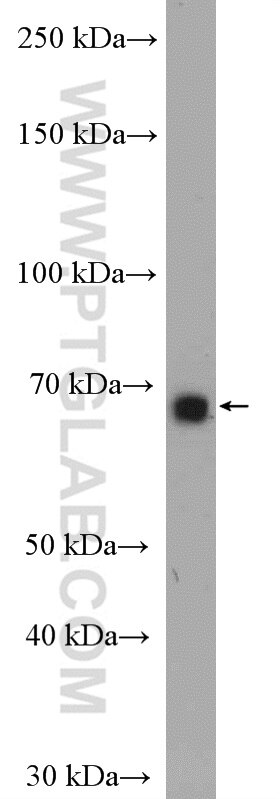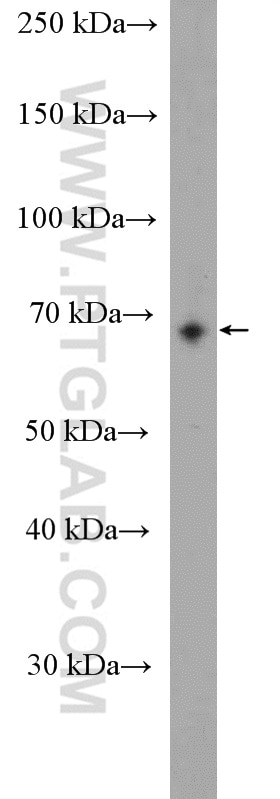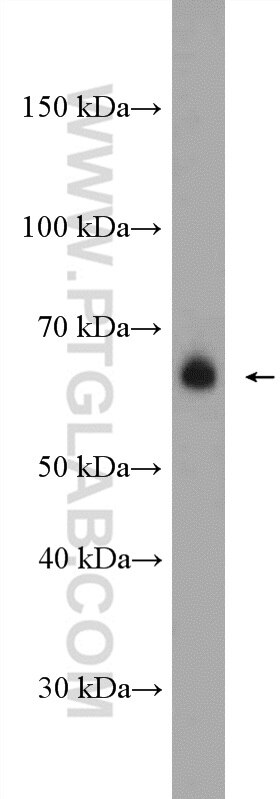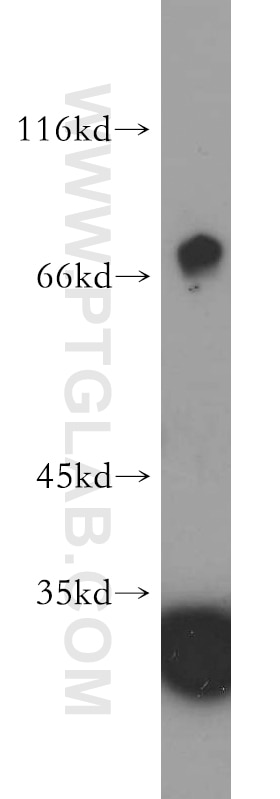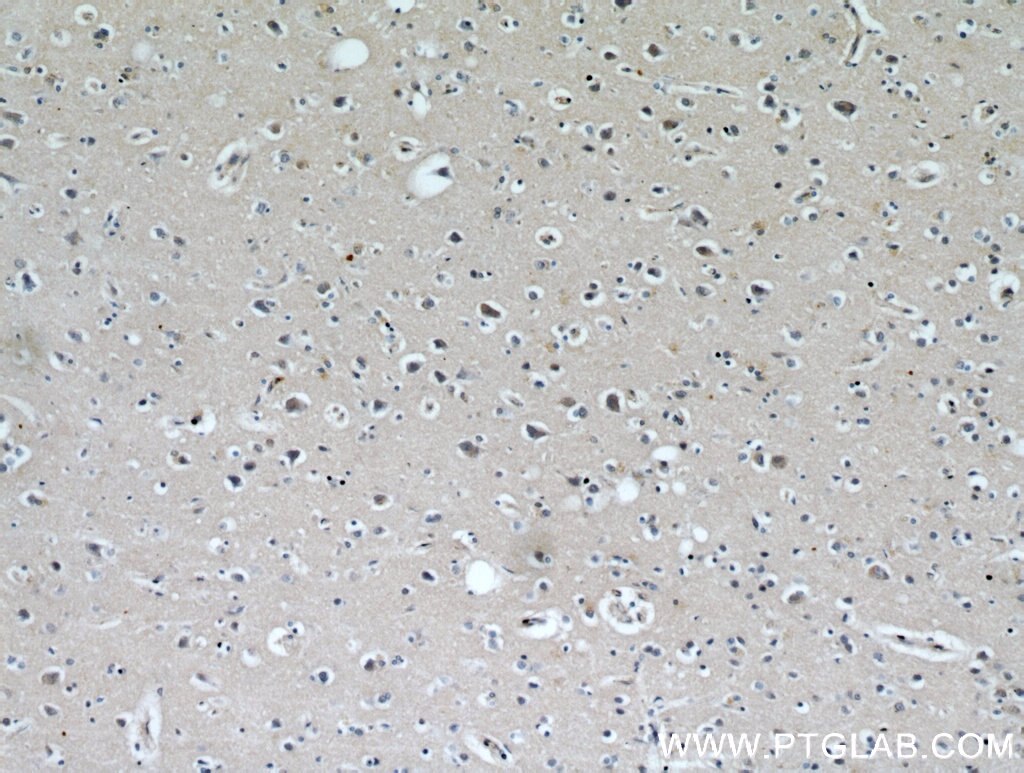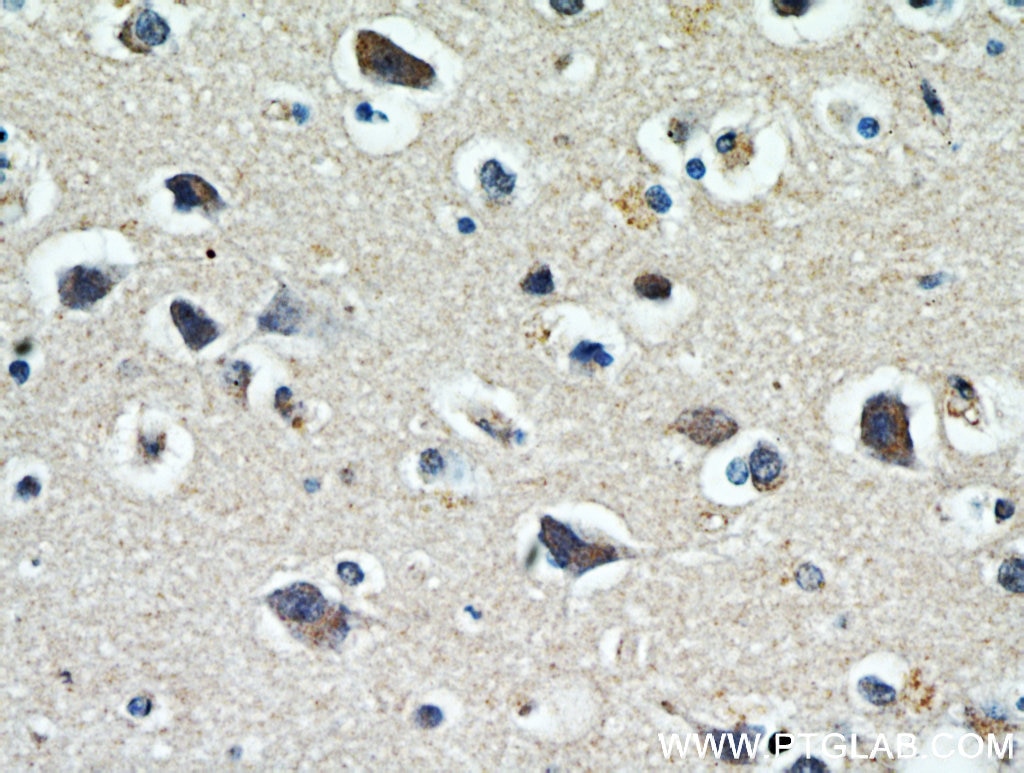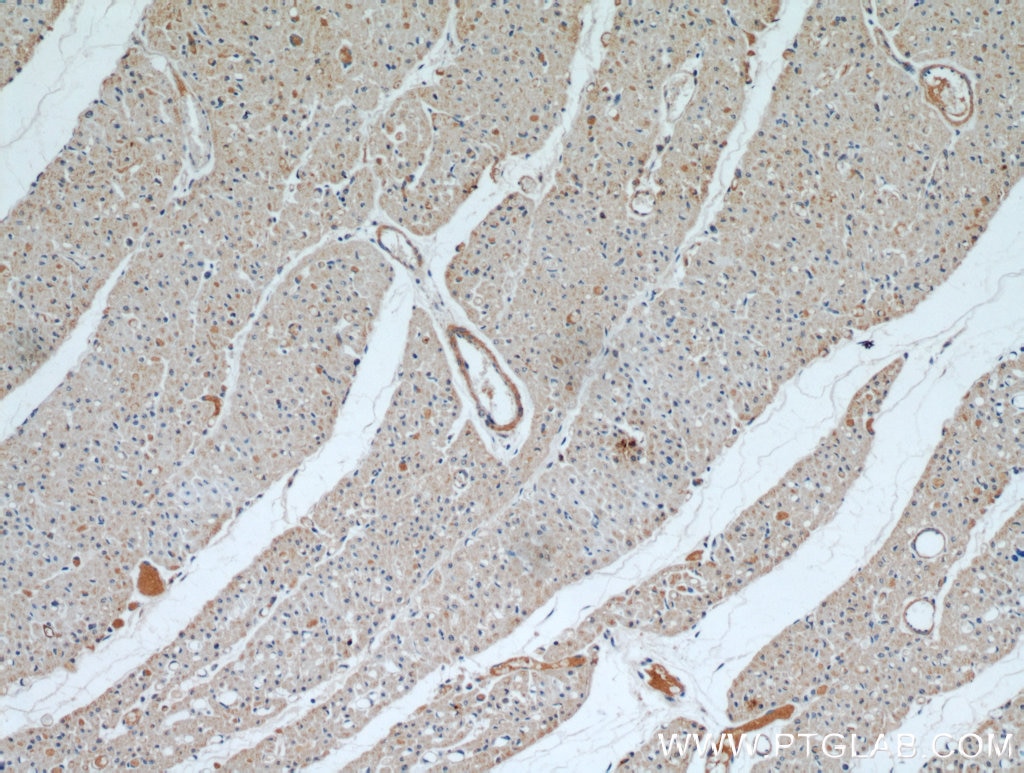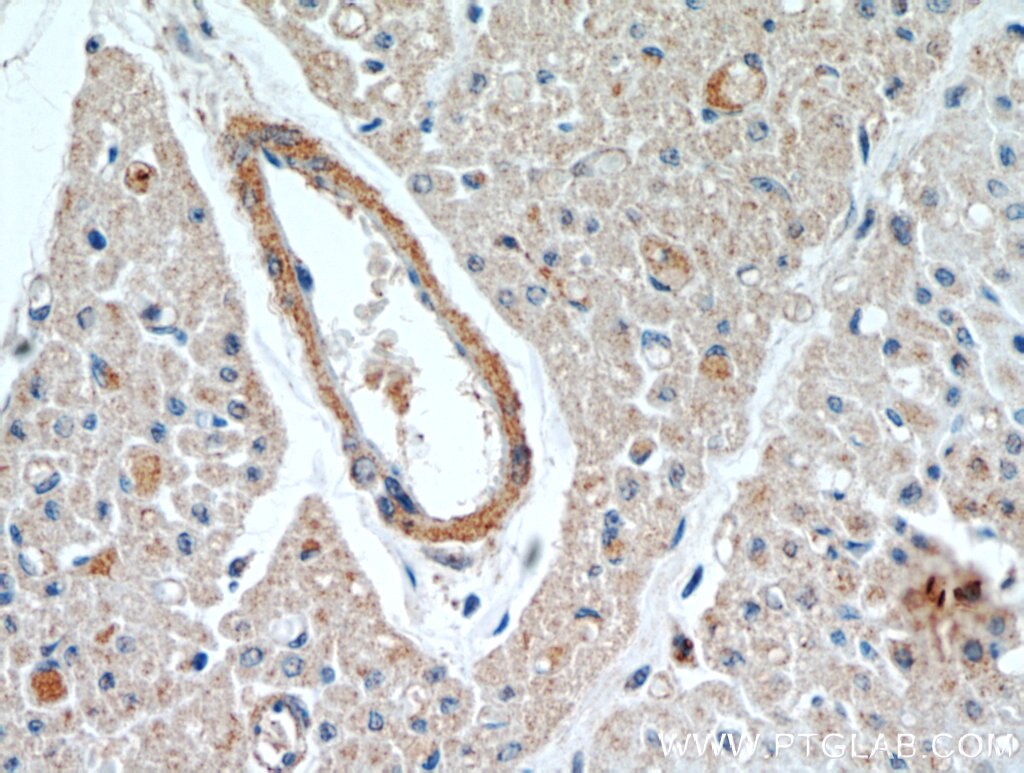Validation Data Gallery
Tested Applications
| Positive WB detected in | mouse brain tissue, A549 cells, mouse lung tissue, human brain tissue |
| Positive IHC detected in | human brain tissue, human heart tissue Note: suggested antigen retrieval with TE buffer pH 9.0; (*) Alternatively, antigen retrieval may be performed with citrate buffer pH 6.0 |
Recommended dilution
| Application | Dilution |
|---|---|
| Western Blot (WB) | WB : 1:500-1:2000 |
| Immunohistochemistry (IHC) | IHC : 1:20-1:200 |
| It is recommended that this reagent should be titrated in each testing system to obtain optimal results. | |
| Sample-dependent, Check data in validation data gallery. | |
Product Information
21280-1-AP targets WBSCR17 in WB, IHC, ELISA applications and shows reactivity with human, mouse, rat samples.
| Tested Reactivity | human, mouse, rat |
| Host / Isotype | Rabbit / IgG |
| Class | Polyclonal |
| Type | Antibody |
| Immunogen | WBSCR17 fusion protein Ag15792 相同性解析による交差性が予測される生物種 |
| Full Name | Williams-Beuren syndrome chromosome region 17 |
| Calculated molecular weight | 598 aa, 68 kDa |
| Observed molecular weight | 68 kDa |
| GenBank accession number | BC069624 |
| Gene Symbol | WBSCR17 |
| Gene ID (NCBI) | 64409 |
| RRID | AB_10732815 |
| Conjugate | Unconjugated |
| Form | Liquid |
| Purification Method | Antigen affinity purification |
| UNIPROT ID | Q6IS24 |
| Storage Buffer | PBS with 0.02% sodium azide and 50% glycerol , pH 7.3 |
| Storage Conditions | Store at -20°C. Stable for one year after shipment. Aliquoting is unnecessary for -20oC storage. |
Background Information
WBSCR17, also known as GALNT17, which encodes a brain-expressed N-acetylgalactosaminyl transferase (GalNAcT), is located at the distal edge of a region that is commonly deleted or duplicated in Williams Beuren Syndrome (WBS), a developmental disorder with motor and coordination problems, impaired visuospatial memory, and abnormal social interaction (PMID: 31554716). WBSCR17 loss-of-function has significant effects on cerebellar development, and is associated with phenotypes including developmental delay, deficits in motor coordination, reduced exploratory activity, and impaired social behavior (PMID: 22787146).
Protocols
| Product Specific Protocols | |
|---|---|
| WB protocol for WBSCR17 antibody 21280-1-AP | Download protocol |
| IHC protocol for WBSCR17 antibody 21280-1-AP | Download protocol |
| Standard Protocols | |
|---|---|
| Click here to view our Standard Protocols |
